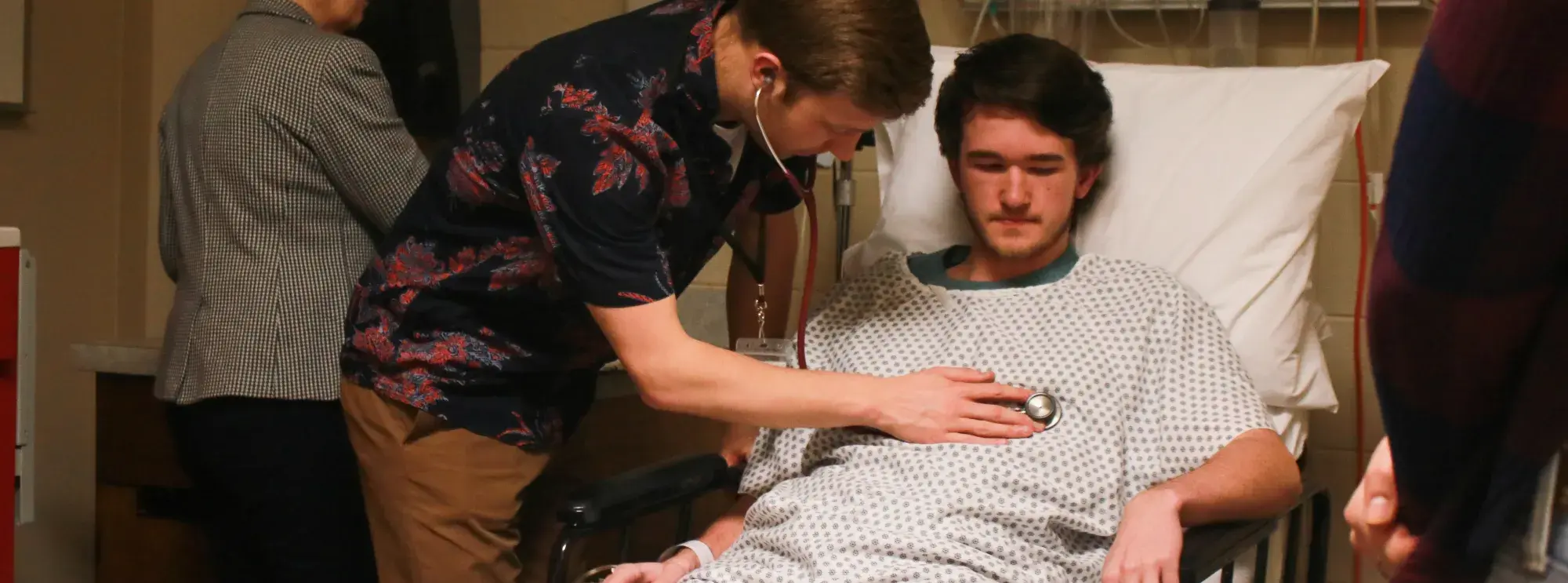Inter-Professional Collaboration to Enhance Simulation
Simulation has been recognized as an effective component of nursing education by the American Association of Colleges of Nursing (2008), the National Council of State Boards (2014), and the National League for Nursing (2013); and its application in undergraduate nursing programs is expanding.
<p>Most simulation programs involve the use of medium to high-fidelity mannequins. However, limitations such as lack of realism and inability to provide opportunities for therapeutic communication have been identified with the use of high-fidelity simulation. Thus, there has been a recent innovative proposal to prepare theater students as standard patients for nursing simulations (Hart & Chilcote, 2016).</p>
<p>The goal of this project is to determine the relationship of the use of theater students as simulation patients on the perceived self-efficacy and self-confidence of baccalaureate nursing students as well as their satisfaction of the simulation experience. Based on theater student availability, half of the nursing students acted as a control group and only interacted with the <span>mannequin</span> as they would normally. Students who did interact with a theater student were interviewed in focus groups and surveyed using two instruments developed by the National League of Nursing.</p>
<p>Survey results from the students who interacted with a theater student will be compared with the results from students who were not able to have that interaction. Additionally, the interviews from focus groups of students who were able to interact with a theater student will be transcribed and coded for themes.</p>
<h6>Researchers:</h6>
<p>Principle Investigator: Katherine Kunnen Co-Investigator: Dawn Frambes</p>
<h6>Current Research Assistant:</h6>
<p>Makalah Hartgerink</p>







